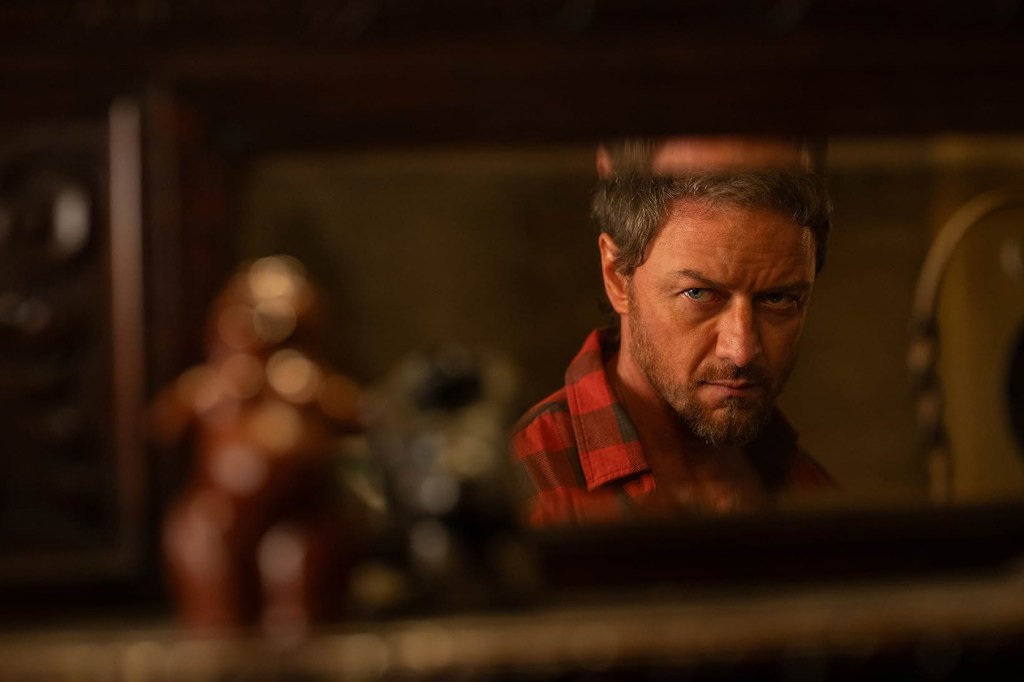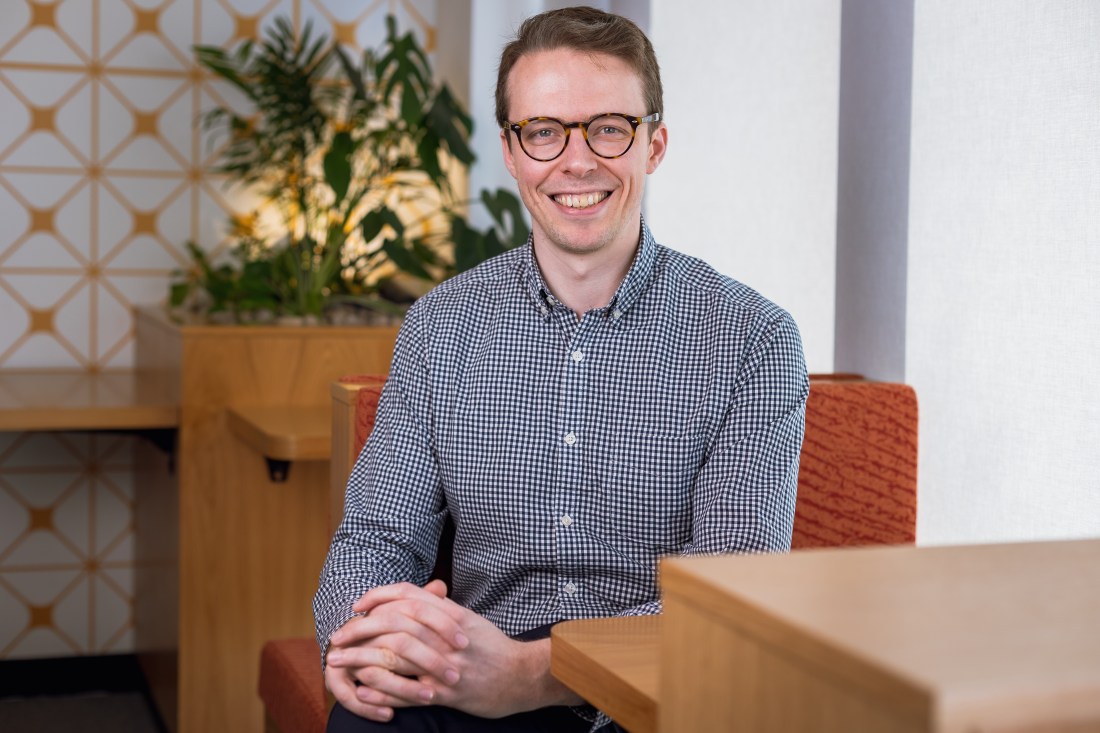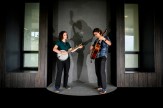Hollywood’s remake trend continues with ‘Speak No Evil.’ Why foreign films are reimagined for US audiences
Northeastern experts explain Hollywood’s long-running habit of borrowing stories from established sources, and why sometimes real-life situations can be scarier than fantasy.

LONDON — The movie “The Departed” had Leonardo DiCaprio, Matt Damon and Mark Wahlberg laying down some of the best Bostonian accents ever heard by cinemagoers.
And while the feature-length helped make the likes of the city’s Lindemann Center and Massachusetts Statehouse famous the world over, the movie is one of many to have followed the well-trodden path of the Hollywood remake.
The original, a 2002 film called “Infernal Affairs,” was set nowhere near Boston. In fact, it was shot 8,000 miles away in Hong Kong.
Martin Scorsese’s classic is far from an isolated case. Marilyn Monroe’s “Some Like It Hot,” Tom Cruise’s “Vanilla Sky” and horror film “The Ring” were all based on foreign films that U.S. producers decided needed a complete English language remake rather than simply adding subtitles.
Tomas Elliott, a specialist in the history of theater and film at Northeastern University in London, says part of the attraction for Hollywood producers in remaking a foreign movie is that they know they are working with source material that has already proved it has an audience.
“Speak No Evil,” a psychological thriller currently in cinemas starring James McAvoy (seen in “Split” and “The Last King of Scotland”) and Mackenzie Davis (who starred in “Blade Runner 2049”), is the latest to follow this pattern.

The movie, which depicts the story of an American family that is invited to stay at the remote farmhouse of a British couple for the weekend, is based on a Danish film of the same name that was released only two years prior.
Elliott, an assistant professor in English, says Hollywood’s strategy has broadened beyond remaking cinema from other countries but also to remaking films that were popular in the past — classics such as “Ben-Hur” and “Charlie and the Chocolate Factory” are two notable titles to have been redone — in a trend he calls “franchise cinema.”
“The bottom line from the point of view of a Hollywood executive producer is that they are working with an established franchise and an established screenplay,” Elliott says.
“They’ve got something already in front of them that they’ve seen is likely to play in a certain way with audiences, and so the levels of investment that are required to get that project off the ground, to get it green lit and take it to completion are significantly lower.
“So from a financial bottom line perspective, Hollywood’s going to take that kind of conservative approach and prefer to always work with something that has already been established.”
Elliott says this approach goes “right back to the earliest days of Hollywood” when it first borrowed from “well-established British and European novels” for story inspirations. Even the all-American Western genre was heavily influenced by the 1954 film from Japan, “Seven Samurai,” which would be retold six years later for an English-speaking audience as “The Magnificent Seven.”
Featured Posts
Reviewers and fans of the original Danish take of “Speak No Evil” have two main points of contention with the English version. First, British director James Watkins, who previously worked on “The Woman in Black” with Daniel Radcliffe, and producer Jason Blum, whose Blumhouse Productions company was responsible for 2017’s psychological horror “Get Out,” opted to change the ending.
The second is that in the original, the protagonist couple are Dutch. When they speak in Dutch to each other — and to the daughter of the Danish couple — director Christian Tafdrup chose not to subtitle it so that audiences are also left in the dark and share in the unease of the onscreen characters.
Following the changes, British newspaper The Independent described the English language remake as “the cleaner, tamer, and less daring of the two” films. Elliott says it appears Hollywood’s belief that subtitles are a turn off for a mass audience weighs more heavily than staying true to the ideas of the original movie.
“I think there’s an assumed presumption, particularly in mainstream Hollywood and Anglo-American cinema,” he says, “that audiences are going to be immediately turned off by subtitles.
“It is that feeling of ‘It is not going to fly at all.’ I think that, certainly historically, that has been the case. And so hence this model of taking an established story in a foreign language and rewriting it and retelling it entirely in English.”
He argues that, while having the entire dialogue in English might make it “more assimilable for audiences,” the decision “covers over the tension” that was present in the first take.
Part of the ability of “Speak No Evil” to make its audience uncomfortable is how the British couple, Paddy and Ciara, played by McAvoy and Aisling Franciosi, push the limits of what is socially acceptable.
Ciara scolds the daughter of the American couple, Ben and Louise — played by Scoot McNairy and Davis — for not eating her vegetables. In another scene, Paddy lingers intimately and awkwardly during a hug with Louise (McAvoy says he sees the character as being like Andrew Tate but has denied using the controversial social media influencer as inspiration).
William Sharp, an associate teaching professor of psychology at Northeastern, says it is films like “Speak No Evil” that portray relatable fears that can sometimes be more scary than slasher movies or fantasy horrors.
“It’s the boundary right between unacceptable and acceptable, believable and not believable,” says the Boston-based professor. “And the more you can walk that fine line, the more you are driving the tension. That is what a psychological thriller is tapping into.”
Sharp, a practicing therapist, is a self-confessed horror and thriller fan. But his theory on what makes a true-to-life film more anxious-ridden for the viewer is based on theory as much as it is cinematic experience.
“Sigmund Freud in 1919 wrote a whole piece called ‘The Uncanny,’” Sharp continues.
“Basically, what he says is — and this is my summary — is that things that are so strange and out there, like a dragon flying overhead and burning up a city, is not as scary as something that could really happen.”
For viewers, what can be truly frightening is spotting problematic behaviors or scenarios they can relate to, Sharp argues. Sometimes that is more genuinely unnerving than a Will Smith versus aliens situation, a la “Independence Day,” that is based in fantasy rather than reality.
“It is the fact that small things start to be a little bit off, and that is what really freaks us out,” Sharp says of the tension that ramps up in “Speak No Evil.”
“That’s what’s scary, right? It is not some seven-headed demon in orange or whatnot. It is somebody who could be you, me or anybody that we meet on the streets who then we realize is not what they initially appeared to be.
“And so that’s what I think this film is tapping into. It’s really hitting exactly what Freud was speaking about in ‘The Uncanny.’”










